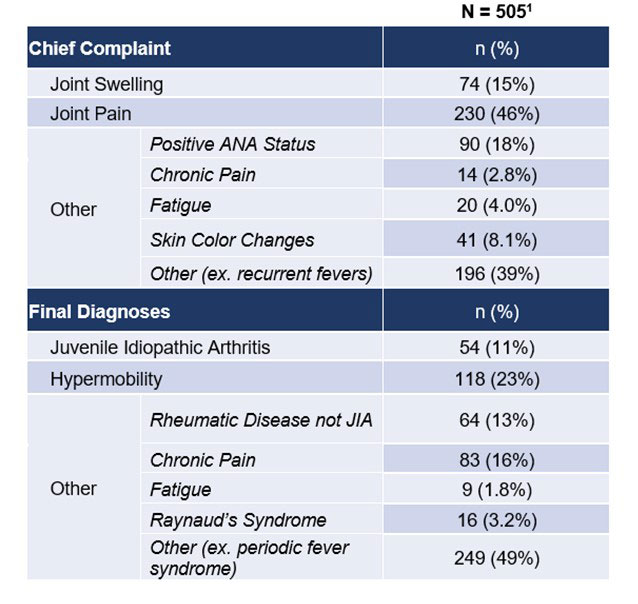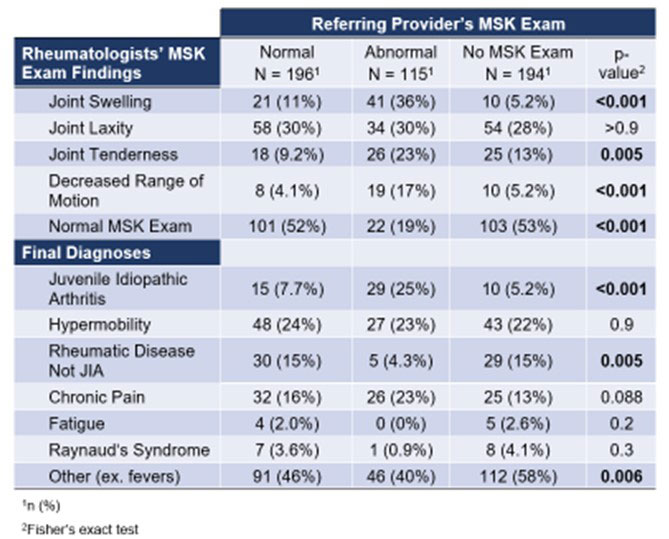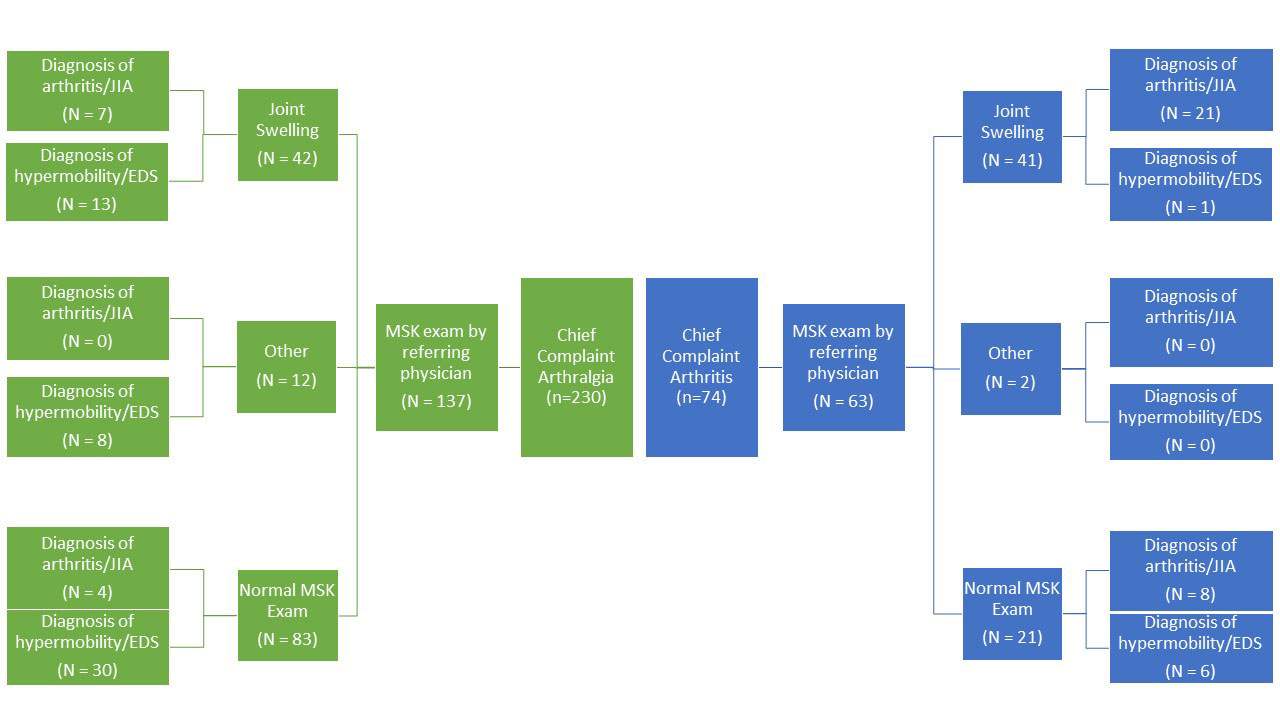Session Information
Session Type: Poster Session C
Session Time: 1:00PM-3:00PM
Background/Purpose: The worsening Pediatric Rheumatology Workforce Shortage necessitates improving referral accuracy. Chief complaints of joint pain (arthralgia) are ideal to target as arthralgia alone does not predict rheumatic disease. Comparing referrals for joint pain against joint swelling (arthritis) may provide unique insight into potential areas for intervention to increase referral accuracy. We hypothesize that referrals for joint pain will be less accurate than referrals for joint swelling.
Methods: New visit referrals were retrospectively reviewed between January 2020 and December 2021, focusing on chief complaint, referring providers’ musculoskeletal exam findings (MSK1), pediatric rheumatologists’ musculoskeletal exam findings (MSK2), and final diagnoses. Primary outcomes included: 1) composition of chief complaints and final diagnoses; and 2) the relation of MSK1 to both MSK2 and the final diagnoses (defined as referral accuracy). Categorical variables were summarized with counts and percentages. Rates of final diagnoses were compared between different rheumatologist exam findings using Fisher’s Exact Test. Cohen’s Kappa was used to assess agreement between MSK1 and MSK2. R version 4.1.3 was used for all analyses.
Results: 505 new patient referrals were analyzed. Most referrals were for a chief complaint of joint pain (230/505, 46%) (Table 1). MSK1 results were divided into a “Normal”, “Abnormal”, or “No MSK Exam” (Table 2). An “Abnormal” exam was more likely to be associated with the finding of joint swelling by a rheumatologist (p< 0.001), while a “Normal” exam was more likely to associated with a normal exam by the rheumatologist (p< 0.001). There did not seem to be a relation of MSK1 and the finding of joint laxity by the rheumatologist (p >0.9). For final diagnoses, an “Abnormal” exam was more frequently found to be associated with JIA (p< 0.001), while MSK1 did not seem to relate to a final diagnosis of hypermobility (p=0.9). Agreement between abnormal MSK1 and MSK2 exams was fair (Kappa value 0.223), with agreement for finding joint swelling moderately high (Kappa value 0.488). In contrast, there was only a slight agreement between MSK1 and MSK2 when the finding was a normal exam (Kappa value 0.097). Finally, when comparing a chief complaint of joint pain against joint swelling, a chief complaint of joint swelling was more likely to relate to a final diagnosis of arthritis, especially if MSK1 was abnormal, while joint pain was more likely to relate to a diagnosis of hypermobility, especially if MSK1 did not find joint swelling (Figure 1).
Conclusion: The lack of agreement between referring providers’ and rheumatologists MSK exam for joint laxity suggests that referring providers are not recognizing hypermobility as a possible explanation for arthralgia. With a quarter of the final diagnoses consisting of Hypermobility, this is a significant area for potential intervention. Next steps include qualitative exploration of referring providers understanding of joint laxity, arthralgia, and ways to decrease avoidable referrals.
To cite this abstract in AMA style:
Leisinger E, Worth C, Wendt L, Schultz K. Impacting Demand Through Supply: An Evaluation of the Types of Pediatric Rheumatology Referrals at a Single Institution [abstract]. Arthritis Rheumatol. 2022; 74 (suppl 9). https://acrabstracts.org/abstract/impacting-demand-through-supply-an-evaluation-of-the-types-of-pediatric-rheumatology-referrals-at-a-single-institution/. Accessed .« Back to ACR Convergence 2022
ACR Meeting Abstracts - https://acrabstracts.org/abstract/impacting-demand-through-supply-an-evaluation-of-the-types-of-pediatric-rheumatology-referrals-at-a-single-institution/



